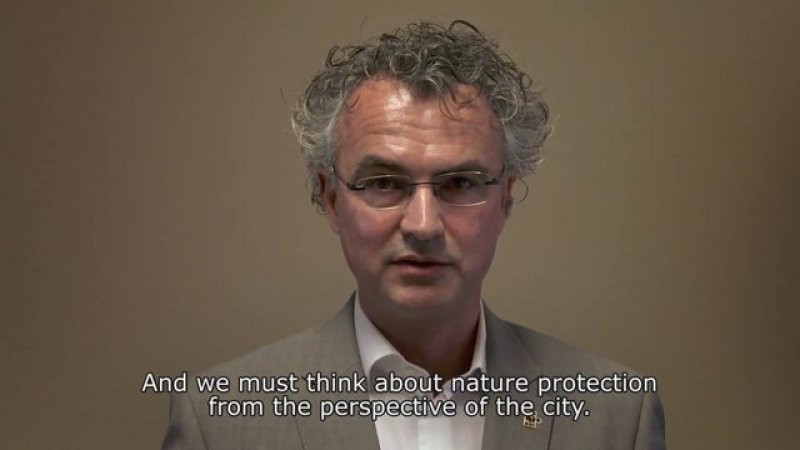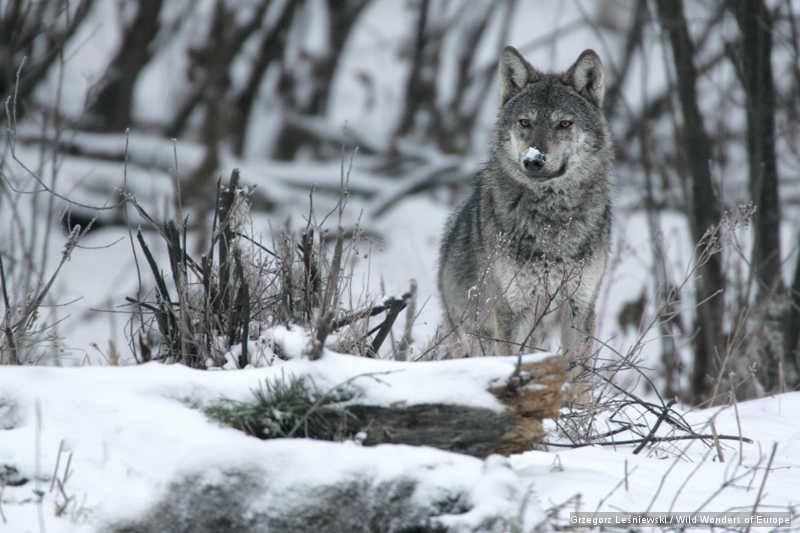
5"08'
© iabr/UP, 2014
"We must rethink nature conservation from the perspective of ongoing urbanization", states Johan van de Gronden, CEO of WWF Netherlands, in the film 'Nature Conservation in an Urban World'.
WWF Netherrlands and IABR–2014–
Growing cities, the urbanization of rural areas, the intensification of agriculture, and the depopulation of peripheral regions inform us that land use is changing rapidly, worldwide. The social, environmental, and economic impacts this in turn entails have negative effects on natural processes
That's why the IABR asked the World Wide Fund for Nature in the Netherlands to contribute to the biennale, to reflect together on the future of nature conservation in an urbanizing world.
To minimize risks as much as possible, we can counteract the adverse effects. But we can also explore the underlying trends to establish what opportunities there are for the restoration of natural processes in our changing environment; how can they be implemented to enhance the quality of our life and security?
Nature Conservation in an Urban World is "an exhibition within the exhibition". Part of A PLANET CULTIVATED it aims to demonstrate what opportunities arise when we restore natural processes and actively deploy them to improve our changeable habitat.
The exhibition is designed as a walk along a river in Europe. We walk along the water from a mountaintop to a delta city, sometimes literally, sometimes metaphorically. Many developments have multiple, interacting effects – what happens upstream, has consequences downstream.
Countryside biodiversity is in danger: more so in Europe than elsewhere in the world. Agriculture has contributed to a decline in biodiversity, to shutting down a variety of complimentary rural services, and to the degradation of soil fertility. Agriculture and forest drainage have eradicated the natural ‘sponginess’ of the land. Rivers in the Netherlands have been given more space to cope with high water levels, but absorptivity can also be increased in the European mountain ranges the rivers spring from. The restoration of the sponginess of the foothills will offer opportunities for recreation as well as please black storks, otters, and beavers, and it will decrease the flood risk downstream.
Focusing on different ways to restore natural processes in connection with agriculture can create healthy and resilient landscapes, with room for food production, nature, and recreation.

© Grzegorz Lesniewski
In some European regions, agriculture has withered away and people have left. Here, natural landscapes are restored and thanks to statutory nature conservation and hunting restrictions, we see large mammals returning to their old habitats. This also offers opportunities for new regional economic initiatives based on nature and recreation.
The walk ends in the delta city, where global developments are perhaps the most visible and where natural processes are therefore under particular pressure. How can restoration and the redevelopment of natural processes contribute to the viability and resilience of our cities, what are the opportunities here? How do we conserve nature, when we ourselves are urban by nature?
NATURE CONSERVATION IN AN URBAN WORLD is one in a series of short videos commissioned by the IABR for its sixth edition, IABR–2014–URBAN BY NATURE–.
director: Alexander Oey
producer: George Brugmans